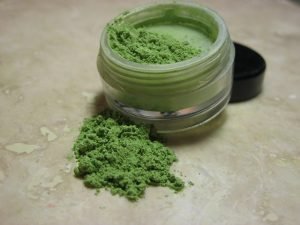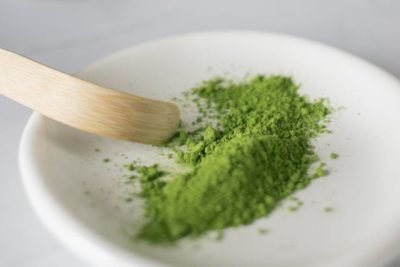What Are The Side Effects Of Green Powder?
Are you curious about the potential side effects of incorporating greens powder into your daily routine? Look no further! This article will provide you with a comprehensive overview of the possible effects that greens powder may have on your health. From digestive issues to allergic reactions, we’ll cover it all, ensuring that you have all the information you need to make an informed decision about whether greens powder is right for you. Get ready for a deep dive into the world of greens powder and its side effects!
Digestive Issues
Gas
One potential side effect of consuming greens powder is an increase in gas production. This can lead to feelings of bloating and discomfort. The high fiber content in greens powder may be to blame, as fiber can be difficult for some individuals to digest efficiently. If you experience excessive gas after consuming greens powder, it may be helpful to reduce your serving size or try a different brand that is lower in fiber.
Bloating
Bloating is another common digestive issue that can occur after consuming greens powder. The combination of various plant-based ingredients in greens powder may contribute to this side effect. Some individuals may be more sensitive to certain vegetables or herbs found in the powder, leading to bloating and discomfort. If you experience bloating after consuming greens powder, it is important to listen to your body and adjust your serving size or try a different brand that agrees with your digestive system.
Diarrhea
In some cases, consuming greens powder may result in diarrhea. This can be attributed to the high fiber content and the presence of certain ingredients that can have a laxative effect. Additionally, if you are not used to consuming greens powder and suddenly introduce it into your diet at a high dosage, your body may not be able to handle the sudden increase in fiber intake, leading to digestive upset. It is advisable to start with a small serving size and gradually increase it over time to allow your body to adjust.
Constipation
On the other hand, some individuals may experience constipation after consuming greens powder. This can be due to the dense fiber content found in the powder, which can absorb water and bulk up the stool. If you are prone to constipation, it is important to ensure you are drinking an adequate amount of water when consuming greens powder to help promote regular bowel movements. Additionally, increasing your vegetable intake from whole foods alongside greens powder may also help prevent constipation.
Nausea and Vomiting
Sensitivity to Ingredients
Certain individuals may have sensitivities or allergies to specific ingredients found in greens powder, which can result in nausea and vomiting. It is important to carefully read the ingredient list before consuming greens powder and be aware of any known allergies you may have. If you experience these symptoms after consuming greens powder, it is recommended to stop using the product and consult with a healthcare professional for further guidance.
Overconsumption
Overconsumption of greens powder can lead to nausea and vomiting. Greens powder is typically intended to be consumed in recommended serving sizes, as excessive intake can overwhelm the digestive system. It is important to follow the instructions provided by the manufacturer and not exceed the recommended daily dosage. If you find yourself experiencing these symptoms after consuming greens powder, it may be necessary to reduce your intake or discontinue use.
Allergic Reactions
Hives
For individuals with allergies, greens powder may potentially cause hives. Hives are red, itchy welts that can appear on the skin as a result of an allergic reaction. If you notice hives developing after consuming greens powder, it is essential to discontinue use and seek medical attention if the symptoms worsen or persist.
Itchy Skin
Similar to hives, itchy skin can also be a manifestation of an allergic reaction to certain ingredients in greens powder. If you experience persistent itching or any other skin-related issues after consuming greens powder, it is advisable to stop using the product and consult with a healthcare professional for further evaluation and guidance.
Swelling
In some cases, consuming greens powder may result in facial or body swelling, known as angioedema. This can occur due to an allergic reaction to specific ingredients in the powder. Swelling should be taken seriously and medical assistance should be sought immediately to determine the cause and appropriate treatment.
Headaches
Caffeine Sensitivity
Some greens powders may contain natural sources of caffeine, such as green tea extract or matcha. For individuals who are sensitive to caffeine, consuming greens powder could potentially trigger headaches. It is important to check the ingredient list for any sources of caffeine and be mindful of your individual tolerance. If you are prone to caffeine-induced headaches, it may be necessary to opt for a caffeine-free greens powder alternative.
Dehydration
Inadequate hydration can also contribute to headaches after consuming greens powder. Some greens powders may have diuretic properties, which can increase urine production and lead to dehydration if not properly balanced with sufficient fluid intake. To prevent dehydration and potential headaches, it is crucial to drink plenty of water throughout the day, especially when consuming greens powder.
Mold Exposure
In rare cases, greens powder may contain molds or fungal contaminants, which can trigger headaches and other adverse reactions. Mold exposure can be detrimental to one’s health, and consuming contaminated products can have serious consequences. To reduce the risk of mold-related headaches, it is important to choose greens powder from reputable brands that undergo rigorous testing for contaminants.

Electrolyte Imbalance
Sodium Deficiency
Some greens powders may contain low levels of sodium, which can lead to an electrolyte imbalance. Sodium is an important electrolyte that helps regulate fluid balance in the body. If you are consuming greens powder as a significant part of your diet and not obtaining enough sodium from other sources, it is possible to develop a deficiency. Symptoms of sodium deficiency may include muscle cramps, weakness, and fatigue. To maintain a healthy electrolyte balance, it is important to ensure an adequate sodium intake from a balanced diet.
Potassium Deficiency
Greens powder is often rich in potassium, which is vital for maintaining proper muscle and nerve function. However, consuming excessive amounts of greens powder without considering other dietary sources of potassium can lead to an imbalance. If you are relying heavily on greens powder for your potassium intake, it is crucial to monitor your overall potassium consumption and consult with a healthcare professional to avoid potassium deficiencies or imbalances.
Magnesium Deficiency
Similar to potassium, greens powder can provide a significant amount of magnesium. However, if greens powder is your sole source of magnesium and you are not obtaining it from other food sources, it is possible to develop a deficiency. Magnesium plays a crucial role in various bodily functions, including nerve and muscle function. To maintain optimal magnesium levels, it is important to incorporate a diverse range of magnesium-rich foods in addition to consuming greens powder.
Interaction with Medications
Blood Thinners
If you are taking blood-thinning medications, it is important to exercise caution when consuming greens powder. Some ingredients, such as leafy greens or herbs, may have natural anticoagulant properties that can enhance the effects of blood thinners, potentially leading to excessive bleeding or other complications. It is essential to consult with your healthcare provider before incorporating greens powder into your diet to ensure it does not interfere with your medication regimen.
Immune Suppressants
Individuals taking immune suppressant medications, such as corticosteroids or certain transplant medications, should be cautious when using greens powder. The presence of immune-enhancing ingredients, such as certain herbs or algae, may conflict with the intended effects of these medications. It is advisable to speak with a healthcare professional to assess the compatibility of greens powder with your specific medication regimen.
Antidepressants
Certain greens powders may contain ingredients that can interact with antidepressant medications, specifically those that affect serotonin levels. St. John’s Wort, for example, is an herb commonly found in greens powders that can interfere with the effectiveness of certain antidepressants. To prevent potential interactions, it is crucial to discuss the use of greens powder with your healthcare provider if you are taking antidepressant medication.

Risk of Heavy Metal Contamination
Lead
One concern with greens powder is the potential risk of heavy metal contamination, particularly lead. Lead can be present in the soil in which the greens are grown, and if not properly monitored during the manufacturing process, it can end up in the final product. Chronic exposure to lead can have detrimental health effects, especially in vulnerable populations such as children and pregnant women. To minimize the risk of lead exposure, it is important to choose greens powder from reputable brands that prioritize quality control and rigorous testing.
Arsenic
Like lead, arsenic is a heavy metal that can be present in greens powder due to contamination in the growing environment. Arsenic exposure can have serious health consequences, including an increased risk of certain cancers. It is crucial to choose greens powder brands that prioritize sourcing from uncontaminated areas and conduct thorough testing to ensure low levels of arsenic.
Cadmium
Cadmium is another heavy metal that can potentially contaminate greens powder. Similar to lead and arsenic, cadmium can be present in the soil and absorbed by plants. Long-term exposure to cadmium can be harmful to various organs, including the kidneys and bones. To minimize the risk of cadmium exposure, it is important to select greens powder from brands that prioritize sourcing from low-cadmium areas and conduct regular testing.
Pregnancy and Breastfeeding
Lack of Safety Data
There is limited safety data regarding the use of greens powder during pregnancy and breastfeeding. While the majority of the ingredients found in greens powders are derived from natural sources, there may still be potential risks associated with specific ingredients or variations in dosage. It is crucial for pregnant or breastfeeding individuals to consult with their healthcare providers before incorporating greens powder into their diet to ensure it is safe for both mother and baby.
Herb Interactions
Many greens powders contain various herbs and botanicals, some of which may have the potential to interact with medications or affect hormonal balance. During pregnancy and breastfeeding, it is essential to exercise caution and avoid herbs that have not been proven safe for use during these periods. Consulting with a healthcare provider is strongly recommended to determine whether the ingredients in the greens powder are suitable for your specific situation.
Difficulty in Absorption of Nutrients
Phytic Acid
Phytic acid is naturally present in many plant-based foods, including those commonly found in greens powder. While phytic acid can offer some health benefits, it can also reduce the bioavailability of certain minerals, such as iron, zinc, and calcium, by binding to them and inhibiting their absorption. If you rely heavily on greens powder as a source of these minerals, it is important to ensure a varied and balanced diet rich in other food sources to prevent potential deficiencies.
Oxalates
Greens powder may also contain oxalates, which are compounds found in many plant-based foods. Oxalates can bind to calcium to form crystals, potentially leading to kidney stones in susceptible individuals. If you have a history of kidney stones or other calcium-related health issues, it is advisable to speak with a healthcare professional before consuming greens powder to assess the overall oxalate intake and potential risks.
Potential Harmful Ingredients
Artificial Sweeteners
Some greens powders may contain artificial sweeteners to enhance taste without adding excess calories. However, these sweeteners can have their own set of potential side effects, including digestive issues, headaches, and even long-term negative effects on metabolism and gut health. If you have sensitivities to artificial sweeteners or prefer to avoid them, it is important to carefully read the ingredient list of greens powders and opt for those that use natural sweeteners or are unsweetened.
Fillers
To improve the texture or appearance of greens powder, some brands may incorporate fillers or additives. These additional ingredients may not add significant nutritional value and can potentially cause digestive discomfort or other adverse reactions. Checking the ingredient list for fillers and choosing greens powders with minimal additives can help minimize potential side effects.
Additives
Similar to fillers, some greens powders may contain additional additives, such as preservatives, colorings, or flavorings. These additives may not align with certain dietary preferences or may be associated with potential side effects. Opting for greens powders with minimal or no additives can help ensure a more natural and potentially safer product.
In conclusion, while greens powder can be a convenient and nutrient-dense addition to your diet, it is important to be aware of potential side effects. Digestive issues, nausea and vomiting, allergic reactions, headaches, electrolyte imbalance, interactions with medications, heavy metal contamination, pregnancy and breastfeeding considerations, difficulty in nutrient absorption, and the presence of potentially harmful ingredients are all factors to consider. By understanding these potential side effects and making informed choices, you can enjoy the benefits of greens powder while minimizing potential risks to your health. As always, it is advisable to consult with a healthcare professional before making any significant changes to your diet or supplement routine.


